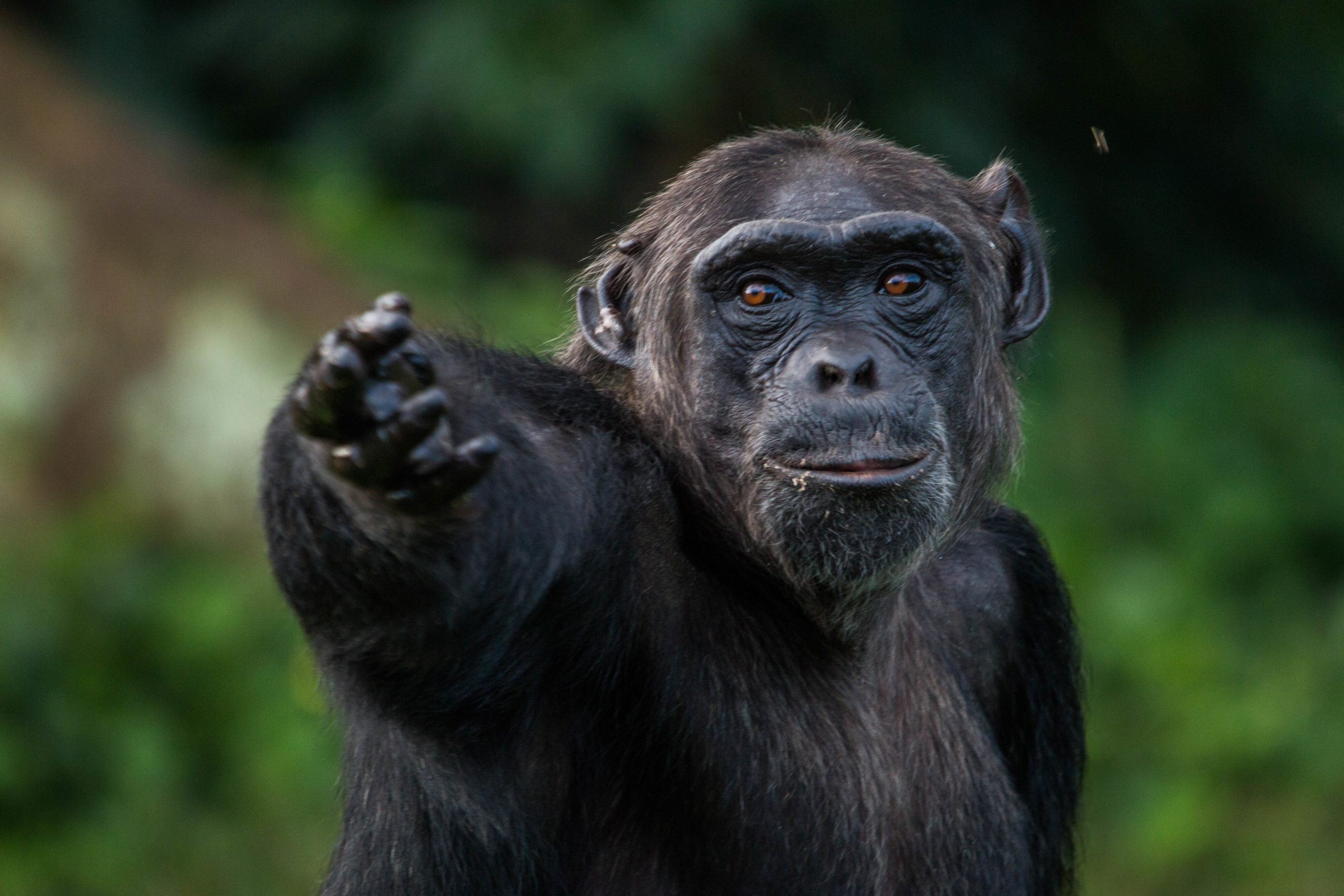10 Fascinating Facts about Chimpanzees
10 Fascinating Facts about Chimpanzees. Chimpanzees, our closest living relatives in the animal kingdom, share approximately 98% of their DNA with humans. These highly intelligent and social primates exhibit a wide range of behaviors and characteristics that continue to captivate scientists and wildlife enthusiasts alike. Here are 10 fascinating facts about these incredible creatures:
1. Genetic Similarity to Humans:
Chimpanzees share about 98% of their DNA with humans, making them our closest living relatives. This genetic closeness underpins many similarities in behavior, social structure, and even emotions between the two species.
2. Highly Intelligent:
Chimpanzees exhibit remarkable cognitive abilities. They can solve complex problems, use tools for various purposes such as foraging for food or cracking nuts, and even demonstrate self-awareness, as evidenced by their performance in mirror self-recognition tests.
3. Tool Use: – 10 Fascinating Facts about Chimpanzees
Tool use among chimpanzees is widespread and diverse. They use sticks to fish for termites, rocks to crack open nuts, and leaves as sponges to soak up water for drinking. This ability showcases their adaptive intelligence and capacity for learning.
4. Social Structure:
Chimpanzees live in complex social groups known as communities. These communities are typically led by a dominant male, although females also play crucial roles in social dynamics. Within these groups, intricate hierarchies and alliances form, influencing access to resources and reproductive success.
5. Communication Skills:
Chimpanzees communicate through a variety of vocalizations, facial expressions, and gestures. They use different calls to convey emotions, warnings, and intentions, and can even learn human sign language when taught in captivity, demonstrating their ability to acquire and comprehend symbolic communication.
6. Emotional Depth:
Chimpanzees exhibit a wide range of emotions, including joy, sadness, fear, and empathy. They form strong bonds with family members and peers, displaying affection through grooming, hugging, and comforting behaviors. Observations of chimpanzees mourning their deceased companions further underscore their emotional depth.
7. Territorial Behavior: – 10 Fascinating Facts about Chimpanzees
Chimpanzees are territorial animals, and they fiercely defend their home ranges against intruders from neighboring communities. Territory boundaries are marked through vocalizations, displays of aggression, and occasional boundary patrols. These territorial behaviors help maintain group cohesion and protect valuable resources.
8. Nutrition and Foraging:
Chimpanzees are omnivores with a varied diet that includes fruits, leaves, seeds, insects, and occasionally small mammals. Their foraging strategies vary depending on seasonal availability and local ecology. Chimpanzees’ ability to extract nutrients from a wide range of foods contributes to their adaptability and survival in diverse habitats.
9. Endangered Status:
Despite their adaptability, chimpanzee populations face numerous threats, including habitat loss, poaching, and disease. Human activities such as deforestation, hunting, and illegal wildlife trade continue to diminish their numbers across their natural range in Africa. As a result, chimpanzees are classified as endangered by the International Union for Conservation of Nature (IUCN).
10. Conservation Efforts:
Conservation initiatives aimed at protecting chimpanzees and their habitats are critical for their long-term survival. These efforts involve habitat preservation, anti-poaching measures, community education, and sustainable development projects that promote coexistence between humans and chimpanzees. By raising awareness and implementing conservation strategies, we can help safeguard the future of these remarkable creatures.
Remarks: – 10 Fascinating Facts about Chimpanzees
In conclusion, chimpanzees’ intricate social lives, remarkable intelligence, and genetic kinship with humans make them subjects of enduring fascination and study. Understanding and protecting these iconic primates is not only essential for biodiversity conservation but also for recognizing our shared evolutionary heritage and responsibility toward all life forms on our planet.








